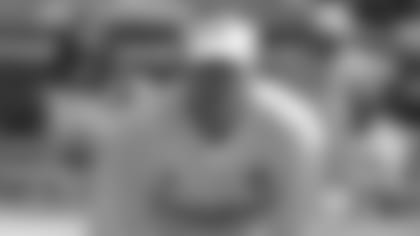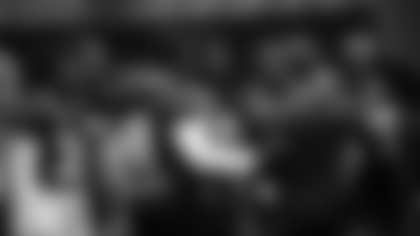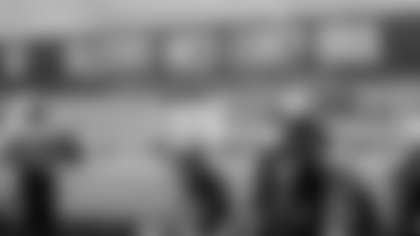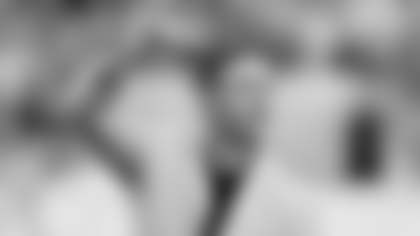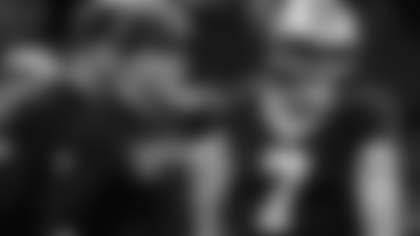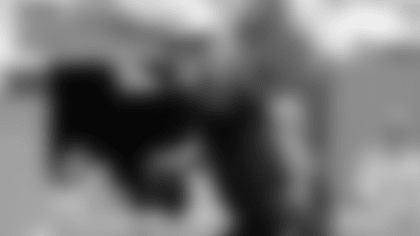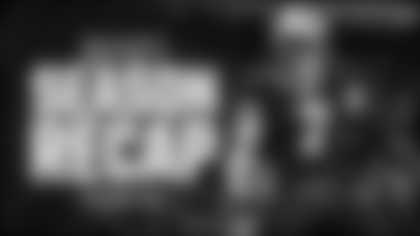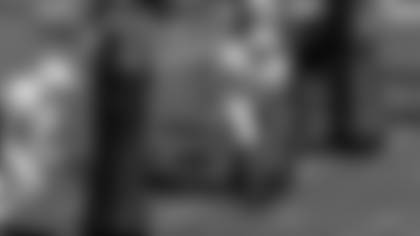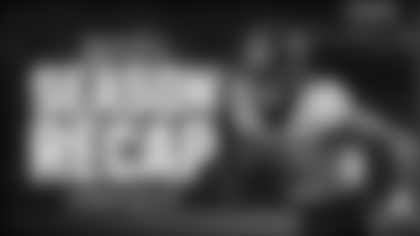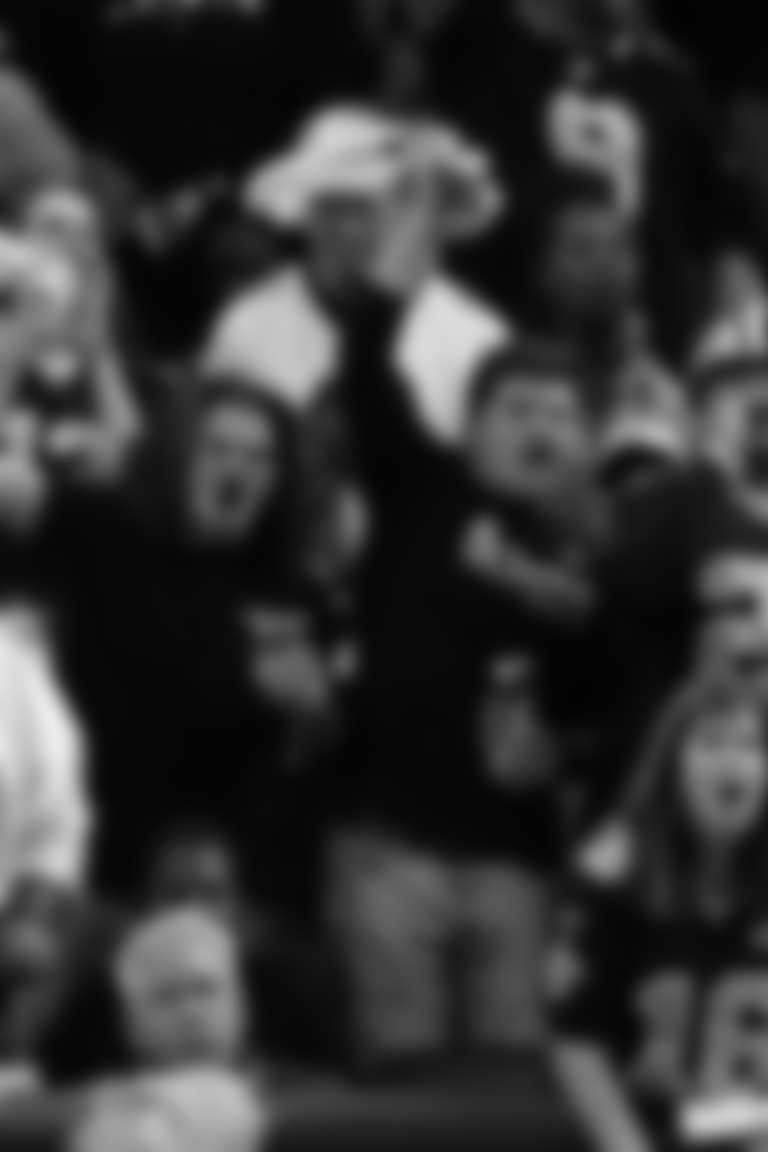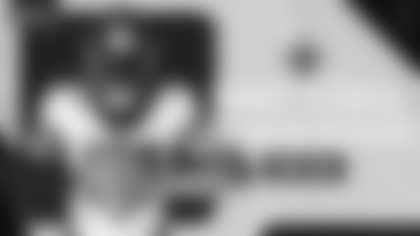New Orleans Saints Head Coach Sean Payton
Press Conference
Friday, December 2nd, 2011
Opening Statement
"Let me just hit the injury and participation final report. Defensive End Turk McBride, with his ankle, did not practice. He is out. Linebacker Jonathan Vilma with his left knee was limited. He is probable. Cornerback Jabari Greer with his right knee was full. He is probable. Defensive Tackle Tom Johnson, left elbow, was full. He is probable."
Does having a healthy roster make it harder to determine the inactives?
"You hit it on the head. We are getting to a pretty good stretch here, knock on wood, where most of the guys are healthy. Turk McBride is the one player, right now, with his ankle sprain, that we are working through. He is getting close. Then it really falls on what you are thinking in regards to game plan with the opponent you are playing. What they do offensively and defensively. Having your inactives mostly being healthy is a good problem, yet it is a challenge that you look at in regards to that specific game. It's no different this week. We will look closely. That process begins early in the week as you start to look at reps. Especially with a short week, there are only so many reps we are going to have in practice and you want to make sure that the guys that are getting them are the guys who are going to be playing."
Is Turk McBride's injury worse than you originally thought?
"No, it is a high ankle sprain. I think, ten years ago, you had an ankle sprain and some took longer than others. I think we are further along in diagnosing the differences. His is what we thought it was."
With the announcement of his retirement, what did Darren Sharper mean to this team?
"First off, he is a Hall-of-Fame Free Safety. Each season as you put your roster together, at times you look for immediate help in a certain area. I think what Darren brought, not just to the Saints but to all of the teams that he played for, was that football awareness at the free safety position. He has real good instincts. He is a player that you would say the ball finds him. There is a reason that happens. He had a real good way of diagnosing based off of film study and his experience and where the Quarterbacks eyes might go. I think he did a really good job of playing not just red-zone defense but field defense in the nickel and breaking on the ball. For the Saints, he meant a lot to us in the 2009 season. The turnovers, the scores, leadership. It allowed us, in that season, to really work Malcolm (Jenkins) more in the nickel and some of the corner positions. I think it really helped Malcolm a lot in his transition, playing behind a guy like Darren."
The top teams in the league have defenses ranked near the bottom. Did you think that it would change this dramatically?
This came up the other day. I think it is going to be important in this stretch, as we finish the season. If you go back to the Colts when they won the Super Bowl…I believe the year was 2006, our first year here. I think their numbers, statistically, weren't very good defensively. As the season went on, towards the very end of it and in the post-season they were very impressive on that side of the ball. When you discuss a team that potentially has a chance to get in the post-season, I think it is critical that you are seeing that improvement as you get ready to play, if you have that opportunity, in the post-season. It might be a strong defense that is trying to get their offense up to speed. If and when you get into the post-season, it is not uncommon to see a team that statistically over the course of sixteen weeks hasn't put up the numbers that we are looking for. Yet, they find a way where they are playing some of their better football. I think that will be the case when we look back at who is standing at the end. That improvement, regardless of the past stats, is critical. (It's the) same way in special teams. We talk about our kick coverage. The big return we gave up for a touchdown against Green Bay, that is like an F on a test. Then you start factoring in all of your other grades that you are getting. It takes a lot to get back to an average score because of that one return. Ongoing improvement, as you play down the stretch, I think is critical for the chances of those teams advancing. However well we have rushed the football, we need to rush it better as the season wears on. However well we have played red-zone defense, we need to do it better as the season wears on. The same thing applies to each aspect. You hear the term, 'they are playing some their best football' and I think that is important."
If it is not just total defense, what are you looking at to see that improvement?
"Number one, if you can hurry the passer and the clock in his head. There is a good chance that will lead to some of the takeaways you are looking for. Your pursuit of the football. We have said this before. There is no guarantee that with 100% effort that turnovers are going to come. There is a certainty, if there isn't that effort, that they are not going to come. Certainly, not as frequently as you would like them to. The ball disruptions, defensively, you can say it starts with your ability in the front whether it's through pressure or whether it's just a four-man rush. That can begin the process of creating more tipped balls, balls that are hurried, balls that are thrown off of the Quarterback's clock that give you an opportunity for those plays. The turnover that we had the other day in the game defensively ended up being a big red-zone play for us. We had gone down, ran the fake field goal and didn't make it. New York was driving and then we came up with the interception. You hope they come in bunches. When we were at our bye, with six weeks left in the season, there was a plus/minus in regards to where we were at turnover wise. One of the things we talked about is that number isn't changing. As we get to the next six weeks, let's find a way to be plus in the turnovers. We are plus two right now. You have to periodically take a step and regroup and see where we are at right now. (It's the) same way with kick coverage. We can't get that kick back, that we gave up against Green Bay, but let's begin to look closely at moving forward here. That goes with defensive football, offensive football, and the kicking game. The example that I bring up with the Colts back in 2006, they really struggled for a large part of that season defensively. If you look, statistically, at the very end of that season and in their post-season run, they went on the run and won at Baltimore, they might have had one other road game. They played, at the most important time of the year, their best defense. They weren't going to get whatever ranking they had back. They were willing to and recognized that this was an area they have to improve on and if we can we are going to be a tough team to beat. They were."
What challenges do you have in managing all of those personnel groupings?
"It's hard because we don't signal. If you are a team that signals personnel, the player after any play can look and see Curtis Johnson giving a personnel (grouping) and that could mean off-and-on. The challenge for us, because we don't signal, is that we have to talk it well. The players that are hearing it from Curtis on the sideline, that know they are in, are talking. It starts right away with Drew (Brees). When the call is given to Drew, there is a personnel and a call. Immediately, Drew is echoing the call. We have to talk it. Another thing, that Drew does a very good job with, is the gray area with eleven or twelve men in the huddle. He will stand back to make sure that he is not in that count as we are transitioning. That same thing exists defensively with the packages we carry. If we choose to, and we do, be multiple than we need to talk it and understand it so we don't get caught with an extra player on the field or a penalty. It is something we work on. The benefit for us, offensively, is that it is not the traditional if Lance Moore enters the game then we are in Nickel. Lance (Moore) may be entering the game with (Robert) Meachem and (Marques) Colston and (Devery) Henderson are coming off and there is a fullback coming on and we are still in regular. It becomes more of a challenge, defensively, to match when you have four receivers that can play together, separate, or with three on the field with a Fullback and a Halfback. We then have to look closely at tendencies. We have to do a good job with the in-and-out, up-and-down, on-and-off and that is something, to get the tempo that we are looking for, that we have to practice. It's not different defensively with the multiple packages we play with. It's not an easy thing. It is something that starts in training camp and it's something that takes a lot of work. It's never where you have it down and you are just doing it. We have to, even in today's practice, work that element where guys are coming in and coming off. I know the effects of it, if it is done properly, are beneficial."
How critical is it to have a guy like Drew Brees who can handle all of that?
"What is critical is understanding who you have and making sure that you aren't asking them to do things they aren't comfortable with. Drew is very apt at the varied personnel groupings. He is very apt at getting us to the line of scrimmage and getting us to the right play. Most importantly is the protections. I have been where the center is the guy who in charge of who the Mike is. Drew is very comfortable with re-miking a defense so we don't have to throw hot or throw a sight-adjust. In six years, I can think of one or maybe two sight adjusts. That takes a lot to do that. You have to be able to see down safety looks, recognize pressure looks. There are some players where if you go that direction there is an immediate drop-off in their performance. Now you have to look at are we really doing the right thing as coaches. With Drew, his mind races in a way that his mind doesn't get blurry. It stays clear. He can handle that aspect of it. If you have a Quarterback that can handle that, it is a huge benefit."
Did you learn that about him as you got here?
"As the process evolved, there was more and more put on his plate only because we saw he was handling it comfortably. I have been other places where have to take a little bit off the plate and allow the player to play the game and see if there is someone else that can handle more on their plate. That can vary with your team. It's no different than a Jon Vilma. How much at the line do we want to give him when he feels like a play is being changed offensively. He has an appetite for that and has shown that he can handle that. That is not the case with every team. It can vary."
Has the level of noise in the Superdome been up to your expectations?
"If I was trying to be critical, I would say it was our best on Monday Night. Night games are always easier because there is a lead-up to the game. Here we go again on Sunday night. All of us, this happens to players, you get comfortable and think you are going to be able to come out and execute. From a fan base standpoint, creating that excitement that existed in the very beginning when we started winning as opposed to now when we have won and a fan gets used to it. I think the night games benefit us more. As we are in this stretch with four of the last six games, starting last week, being played at home, that can be a big advantage for us. I would say they graded out well last weekend."


